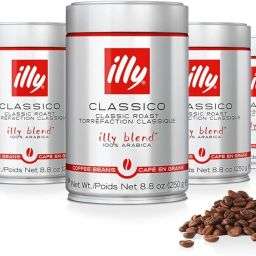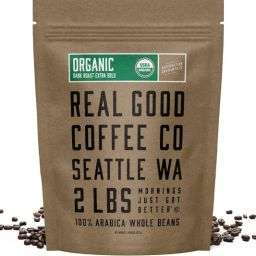
Starbucks, a global coffee giant, has built its reputation on delivering high-quality coffee to millions of customers around the world. From its first store in Seattle’s Pike Place Market to over 30,000 locations globally, Starbucks has become synonymous with coffee itself.
This success is heavily reliant on its meticulous sourcing strategy, ensuring that every cup of coffee offers a unique and satisfying experience. The importance of sourcing is not just about quality; it’s about sustainability and ethical practices that respect both the environment and the people behind the beans.
Key Takeaways
Starbucks’ approach to sourcing coffee beans is a cornerstone of its business model, focusing on quality, variety, and ethical practices. Here are the key aspects:
- Global Sourcing: Starbucks sources coffee beans from diverse regions including Latin America, Asia-Pacific, and Africa, tapping into a wide range of flavors and qualities.
- Unique Blends: By blending different types of coffee beans, Starbucks creates distinctive flavors, ensuring a unique taste profile for its beverages.
- Starbucks Reserve: The Starbucks Reserve line showcases single-origin coffee from specific locations, offering coffee aficionados limited batches of exquisite flavors.
- Ethical Practices: Through C.A.F.E. Practices, Starbucks commits to ethical sourcing, supporting farmers and focusing on sustainability efforts to ensure a positive impact on the planet.
- Efficient Supply Chain: The company’s supply chain management is designed to maintain high quality and efficiency from sourcing to manufacturing, logistics, and distribution, ensuring that customers receive fresh and delicious coffee.
Who Supplies Starbucks Coffee Beans? Unveiling the Global Network
Starbucks, the world’s leading coffee retailer, has perfected the art of sourcing coffee beans. Their global sourcing strategy is a testament to their commitment to quality, sustainability, and ethical practices. Understanding the breadth of Starbucks’ coffee bean supply network sheds light on how they maintain their renowned coffee quality across thousands of stores worldwide.
Diversified Global Sourcing
Starbucks’ approach to sourcing coffee beans is not constrained by geographical boundaries. Instead, the company prides itself on a diversified global strategy, sourcing beans from three primary coffee-growing regions: Latin America, Asia-Pacific, and Africa.
This global perspective not only ensures a consistent supply of beans but also allows Starbucks to offer a variety of flavors and profiles, catering to a wide range of consumer tastes.
Key Suppliers and Regions
The key to Starbucks’ success lies in its careful selection of regions and suppliers. Latin America, for example, is renowned for its vast array of coffee beans, offering flavors that are essential to Starbucks’ signature blends.
The Asia-Pacific region, known for its unique coffee profiles, contributes significantly to the variety in Starbucks’ offerings. Africa, with its rich coffee heritage, provides beans that are cherished for their floral and fruity notes, adding depth to Starbucks’ coffee portfolio.
Starbucks’ Coffee Farm in Costa Rica
In an effort to further control the quality and sustainability of its coffee, Starbucks took an unprecedented step by purchasing its own coffee farm in Costa Rica. This 240-hectare farm serves as a global agronomy center, focusing on research and development of new coffee varietals and farming techniques.
The farm is a clear indication of Starbucks’ dedication to innovation in coffee sourcing and production, ensuring that they stay at the forefront of the industry in terms of quality and sustainability.
Commitment to Quality and Sustainability
Starbucks’ global sourcing strategy is underpinned by a strong commitment to ethical practices and sustainability. Through initiatives like the Coffee and Farmer Equity (C.A.F.E.) Practices, Starbucks ensures that its suppliers adhere to strict standards of quality, environmental stewardship, and social responsibility.
This commitment not only supports farmers and their communities but also guarantees that the coffee beans Starbucks sources are of the highest quality, grown in a way that’s sustainable for the planet.
Starbucks’ Ethical Sourcing Practices
Starbucks’ commitment to ethical sourcing is a cornerstone of its business philosophy, deeply integrated into its supply chain management. The company’s Coffee and Farmer Equity (C.A.F.E.) Practices exemplify its dedication to sustainability, farmer support, and ethical labor practices.
These guidelines ensure that Starbucks sources its coffee beans in an environmentally responsible manner, providing a transparent and fair supply chain. The impact of these practices is profound, promoting sustainable agricultural practices, improving the livelihoods of coffee farmers, and conserving the environment.
Starbucks also takes significant strides in environmental sustainability, reducing waste, conserving water, and minimizing its carbon footprint. Its ethical labor practices extend beyond the farms, ensuring fair wages for farmers and comprehensive healthcare benefits for its employees. This holistic approach to ethical sourcing underscores Starbucks’ commitment to social responsibility, setting a high standard for the industry.
Starbucks’ Supply Chain Management
Starbucks’ supply chain management (SCM) strategy is a model of efficiency and innovation. The company oversees every step of its supply chain, from sourcing and manufacturing to logistics and distribution. This vertical integration allows Starbucks to maintain the quality and consistency of its products, ensuring that each cup of coffee meets its high standards.
The challenges in Starbucks’ supply chain are met with innovative solutions. For instance, the company has developed sophisticated forecasting methods to predict demand accurately, reducing waste and improving efficiency. Its logistics network is optimized to ensure timely delivery of products, even in the face of global disruptions.
The elements of Starbucks’ SCM strategy—sourcing, manufacturing, logistics, and distribution—are seamlessly integrated. The company’s global sourcing strategy ensures a diverse and reliable supply of coffee beans, while its manufacturing processes uphold the highest quality standards. Logistics and distribution networks are designed for efficiency, ensuring that Starbucks products are available worldwide.
FAQs
Do McDonald’s and Starbucks use the same coffee beans?
No, Starbucks and McDonald’s have distinct coffee sourcing strategies, emphasizing different bean sources, roasting techniques, and brewing methods. This distinction ensures that each brand offers a unique coffee experience tailored to their audience’s preferences.
Does Starbucks have its own supply chain?
Yes, Starbucks boasts a fully integrated, vertical supply chain. This comprehensive control over every step, from bean to cup, underscores Starbucks’ commitment to quality, sustainability, and efficiency across its global operations.
Final Thoughts
Starbucks’ approach to coffee bean sourcing, ethical practices, and supply chain management is foundational to its brand and quality. Through strategic global sourcing, Starbucks ensures a diverse and high-quality coffee selection. The company’s commitment to C.A.F.E. Practices and environmental sustainability reflects its responsibility towards ethical sourcing and labor practices, including fair wages for farmers and comprehensive benefits for employees.
Starbucks’ efficient supply chain management, characterized by innovation and challenges, further solidifies its market position. This meticulous attention to sourcing, ethical practices, and supply chain intricacy not only enhances Starbucks’ coffee quality but also strengthens its brand as a leader in the global coffee industry.









